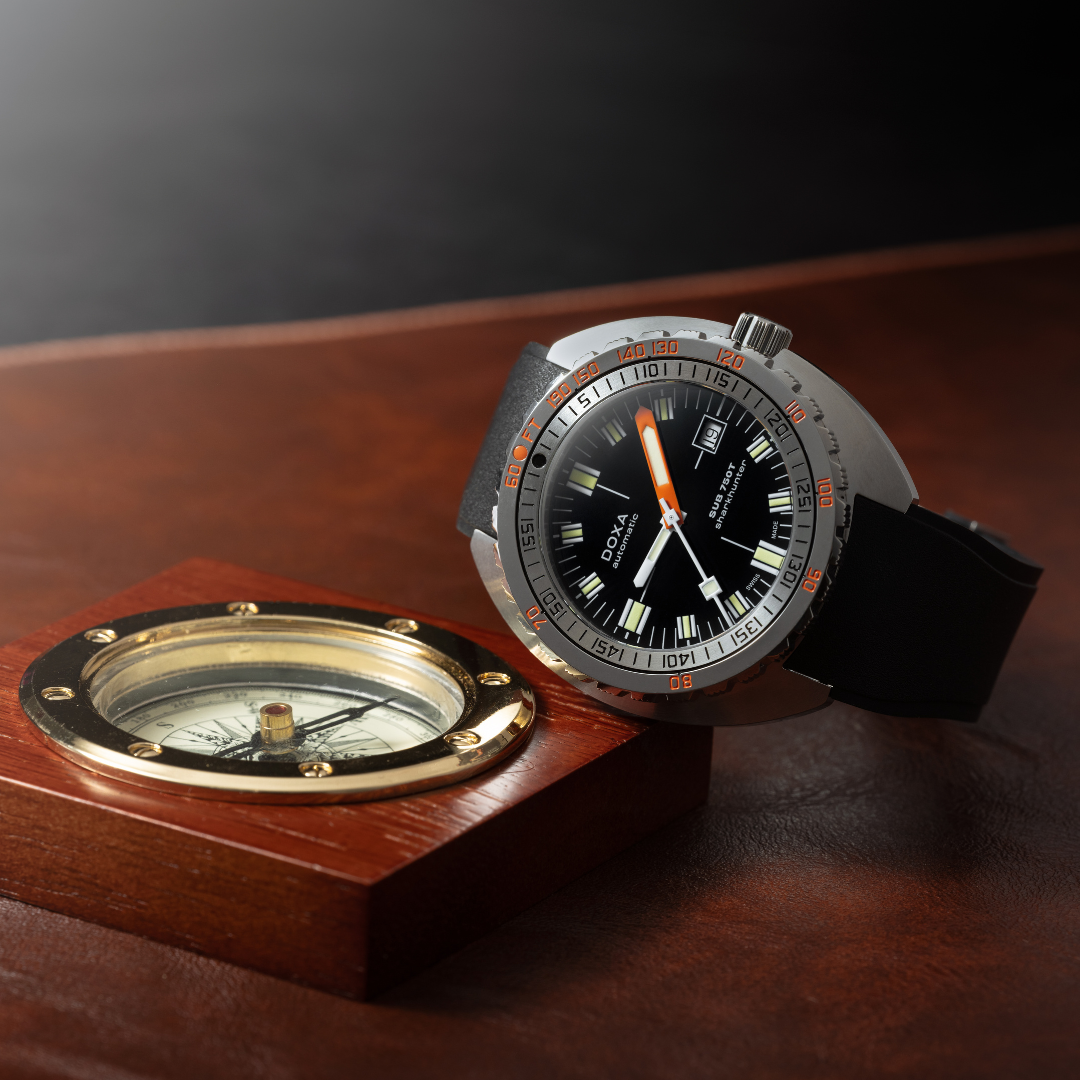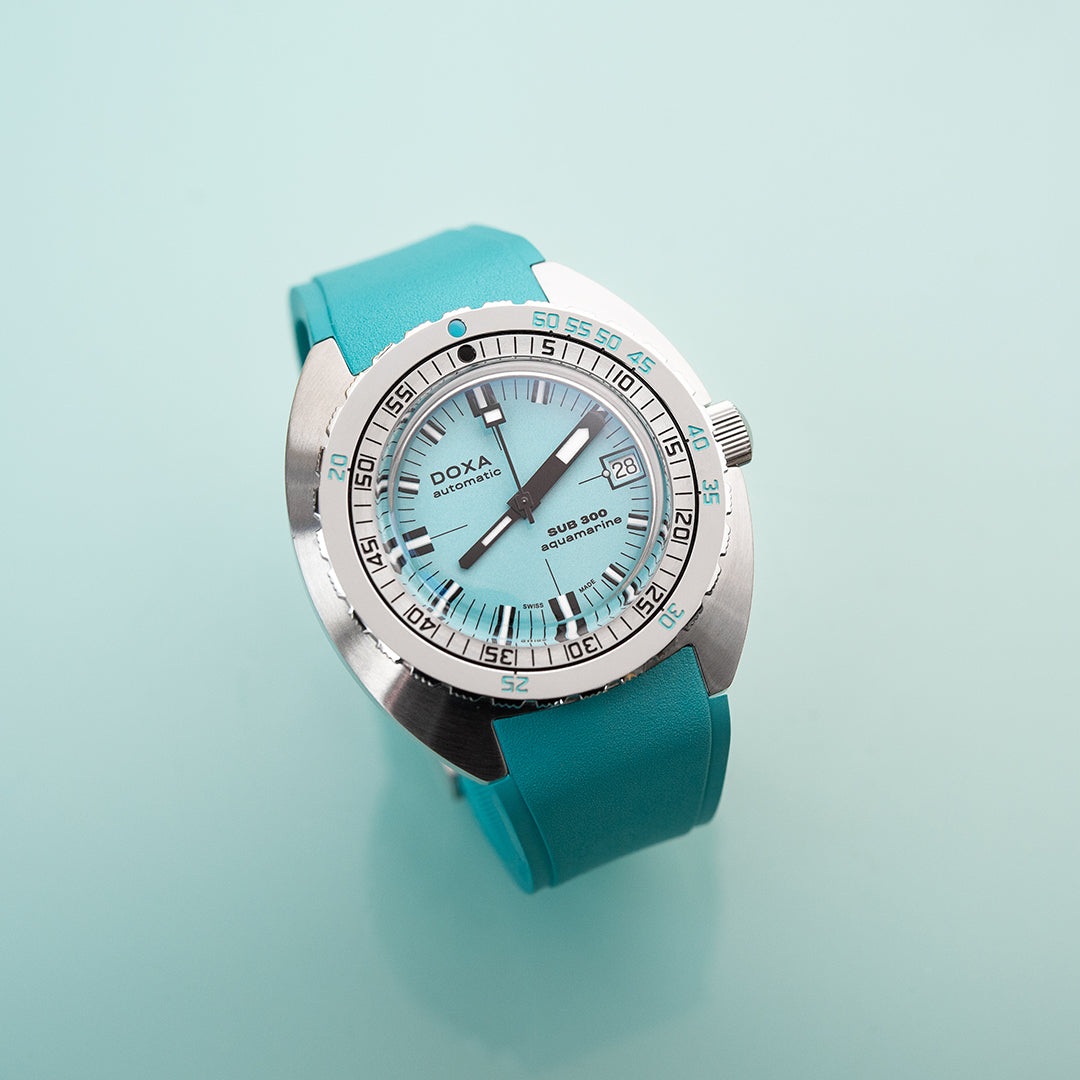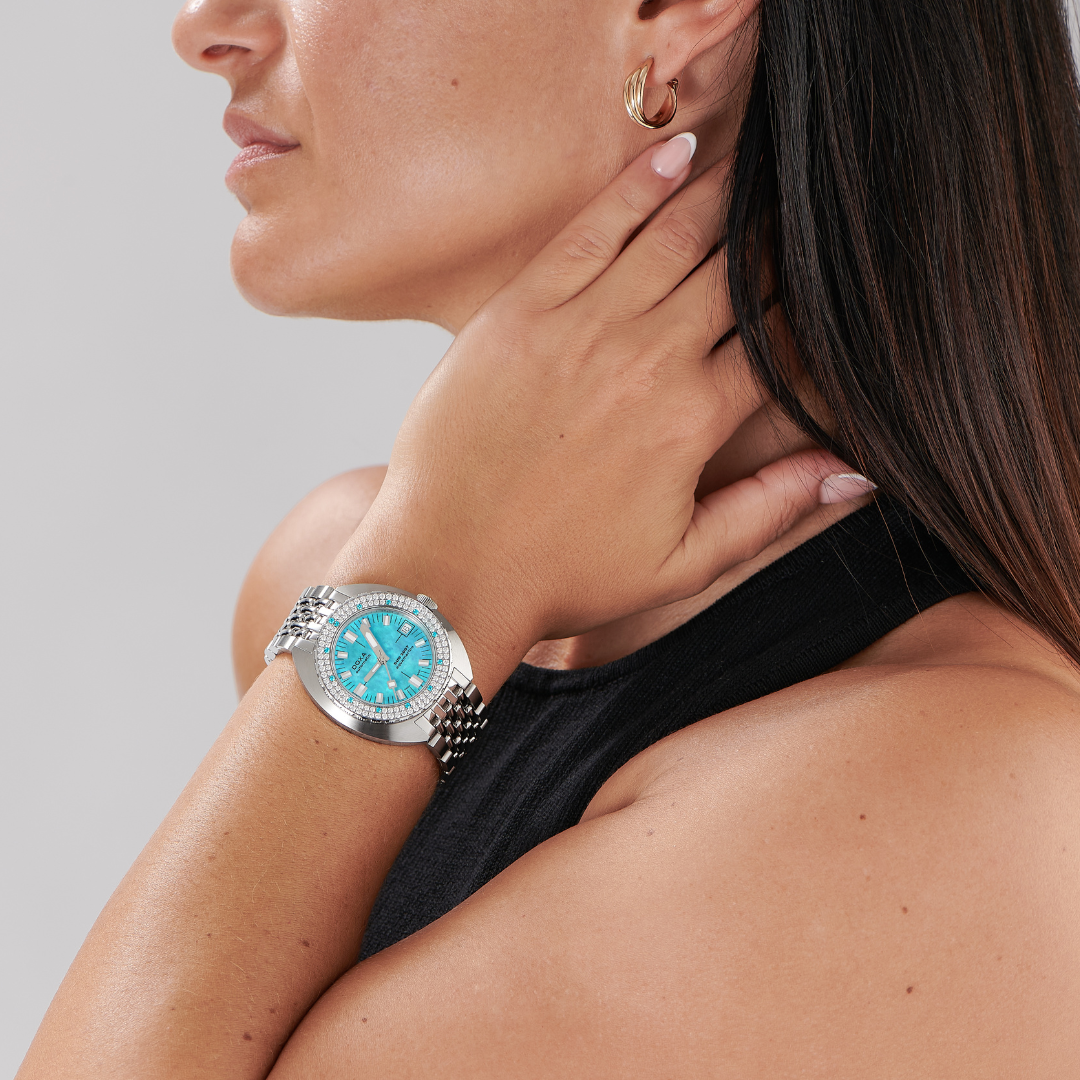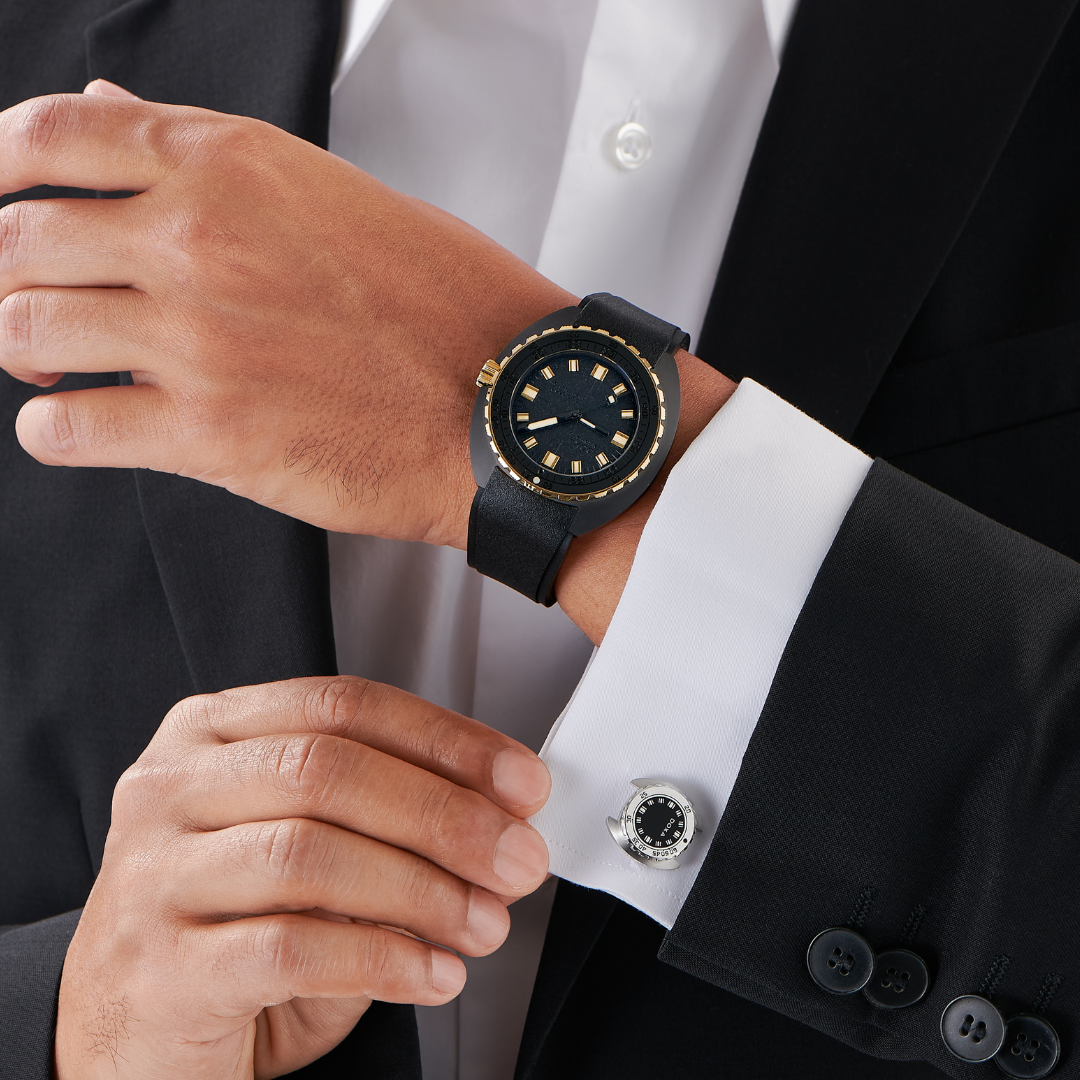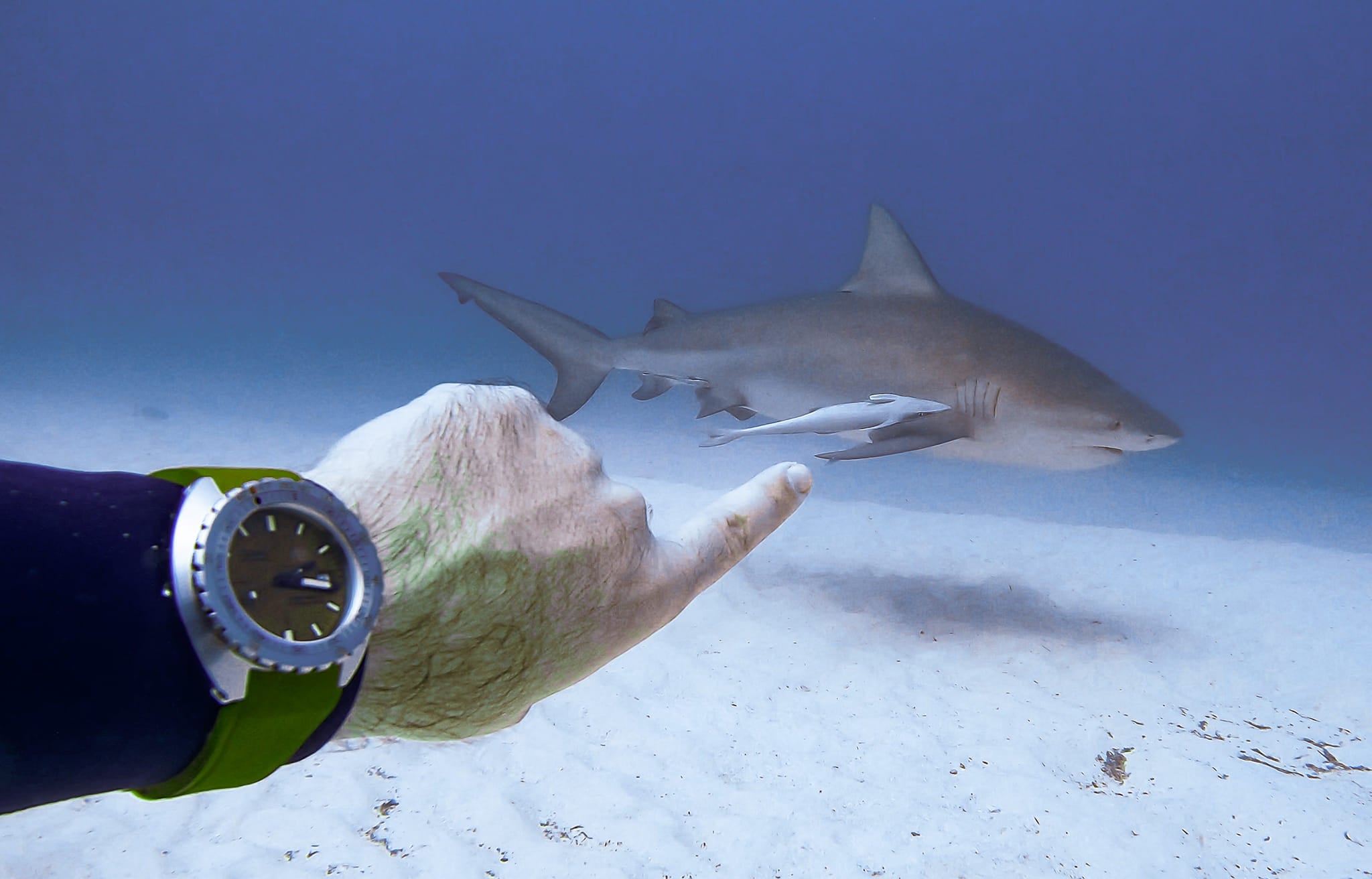
DOXA's Guide to Responsible Diving
DOXA is all about the water. Central to its ethos and vision is the subaquatic world that makes dive watches necessary. As CEO Jan Edöcs says, “DOXA stays close to the water! It’s that simple. Our customers know that we are not going to present a confusing mix of products from different horological genres…everything fits neatly within our modus operandi of watches for the water!” This commitment to water comes with certain responsibilities though, especially our planet’s precious oceans.

Our oceans' flora and fauna face an array of grave dangers in the modern era. Climate change, driven by human activities, has led to rising sea temperatures and ocean acidification, both of which threaten the delicate balance of marine ecosystems. Pollution, particularly plastic waste, poses a significant hazard to marine life, with countless species ingesting or becoming entangled in debris. Habitat destruction, including coastal development and coral reef bleaching, further exacerbate the vulnerability of marine species. Combating these dangers requires a concerted global effort to reduce greenhouse gas emissions, regulate pollution, establish protected marine areas, and divers can play their part in protecting our beautiful watery world.

One of DOXA’s great friends is world adventurer, explorer and dive guide Barna Takats. His passion for the wildlife of the oceans around the world are unrivalled and he has some tips to share on how to be responsible when out in the open waters. “One of the things we say often is: Take only memories and leave only bubbles. You should never take anything from any dive. It doesn’t matter if you are diving a wreck, or the reef, you simply mustn’t take anything away with you. No shells, no rocks, no little metal pieces from a wreck. You might think it is only a small thing, but if all the divers did that then there would be nothing left. Coral reefs and natural habitats are very sensitive, so simply just leave them alone. Wrecks might have historic importance that mustn’t be disturbed. Even artificial reefs and intentionally sunken shipwrecks; if you take pieces as a souvenir, the next diver will not have a chance to see that piece and their dive will be so much less enjoyable. The other part of the saying, leave only bubbles; don’t mark the sand, don’t leave anything - no markings, writings or whatever, just bubbles!”

The fauna, or creatures of the sea can also be impacted by divers entering into their territory. Nature intended them to be left to their own devices, but mankind has used technology to enter their domain. Takats is clear that wildlife should not be interfered with: “Simply, if you see an animal, you look at it, take a photo of it, then leave it. You get as close as possible without bothering it, then you leave it.” Harassing animals not only damages the habitat, but also puts the diver at risk, as most accidents happen because of diver error.
Choosing a responsible and sustainable dive operator is also something easy to overlook, according to Takats. “This is key,” he states. “Many dive shops only care about the money, and they rarely care about the environment. One should try to avoid giving money to these operators. Make sure the operator is committed to protecting the environment. Things start from the boat operation and dive briefings. If nothing conservation-related is mentioned in a briefing, that is a red flag. Dive guides should be good examples to follow, but many times they do the opposite. If you see a dive guide behaving in an inappropriate way, tell somebody; the dive operator, for example, or even report them to the diving association that the guide belongs to. Dive guides touching coral, harassing or feeding animals should not be allowed to work in the industry.”
Finally, from Barna Takats is a point for both divers and non-divers to consider and a cause that all of us can get behind. “One of the most important things we can do is to make sure that we purchase seafood from sustainable sources. Illegal and unsustainable fishing is a huge issue, and we should try to avoid supporting them.”

Another friend of DOXA that spends countless hours admiring and working beneath the waves is Jules Casey. Here she shares with us her Top Five Tips for responsible diving.
1. Don't TouchOne of the most important things we are taught as divers, is look, but don't touch. The corals are easily damaged and are slow growing so avoid ever touching them.
2. Pick Up Litter
It's important to remove any litter that might prove harmful to marine life. Thoroughly check that there are no animals attached or hiding inside the litter first though!
3. Use Reef Safe Sunscreens
There are many reef safe sunscreens on the market which provide us with the protection we need without causing damage to our underwater environment.
4. Check Your Equipment is Secure
To avoid any damage to the underwater environment, ensure that all your dive gear is securely attached and there's nothing dangling that can potentially get caught on plant life or soft corals.
5. Control Your Buoyancy
Having perfect control of your buoyancy is important so as to avoid bumping into anything or touching the seabed.
In conclusion, DOXA's unwavering commitment to the subaquatic world and the responsible enjoyment of our planet's oceans is both admirable and essential. As we navigate the challenges posed by climate change, pollution, habitat destruction, and the impact of human activities on marine ecosystems, DOXA, along with advocates like Barna Takats and Jules Casey, reminds us of our collective responsibility to protect these precious underwater realms. Their invaluable advice, from leaving only bubbles to choosing sustainable practices and supporting eco-conscious operators, serves as a guiding light for both seasoned divers and newcomers. Together, we can ensure that the beauty and biodiversity of our oceans endure for generations to come, fostering a harmonious coexistence between humanity and the fragile underwater ecosystems that DOXA holds dear.


